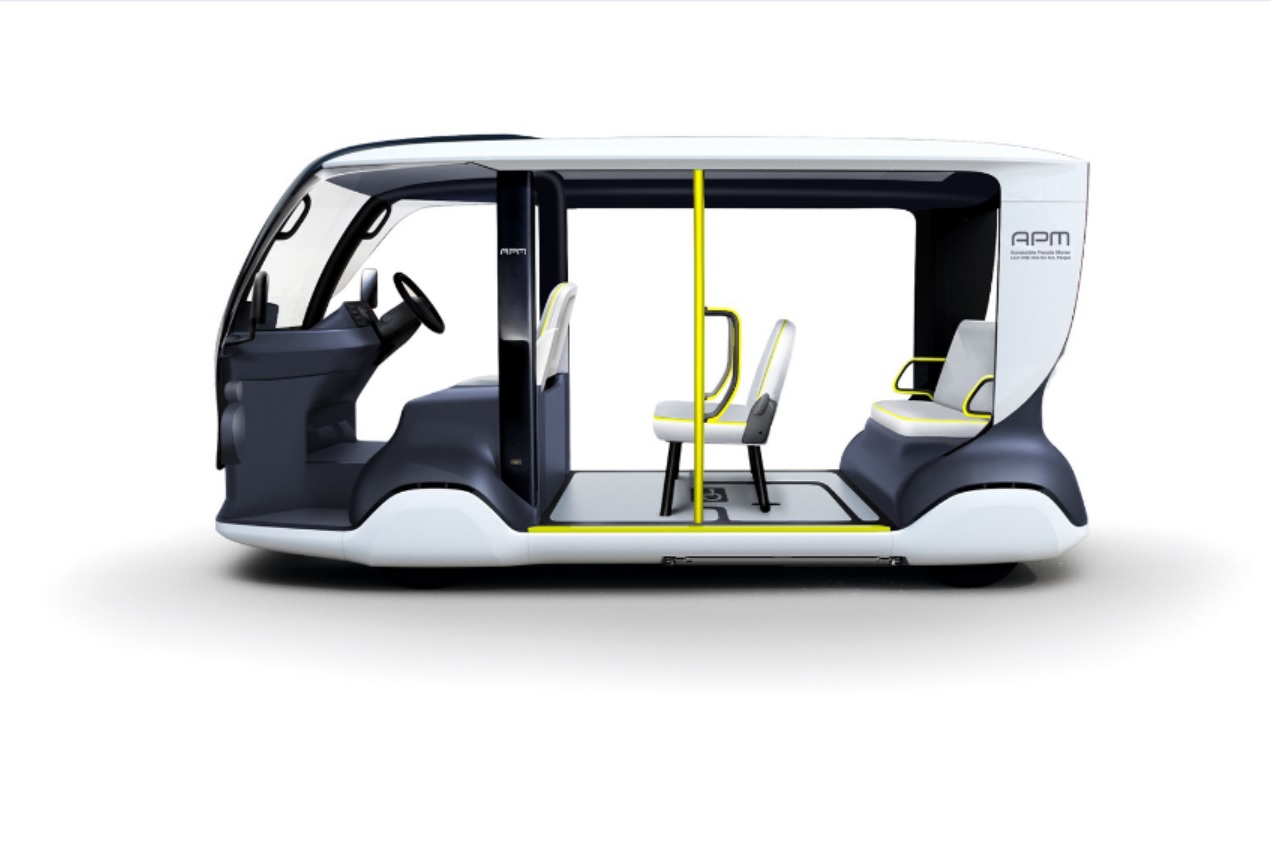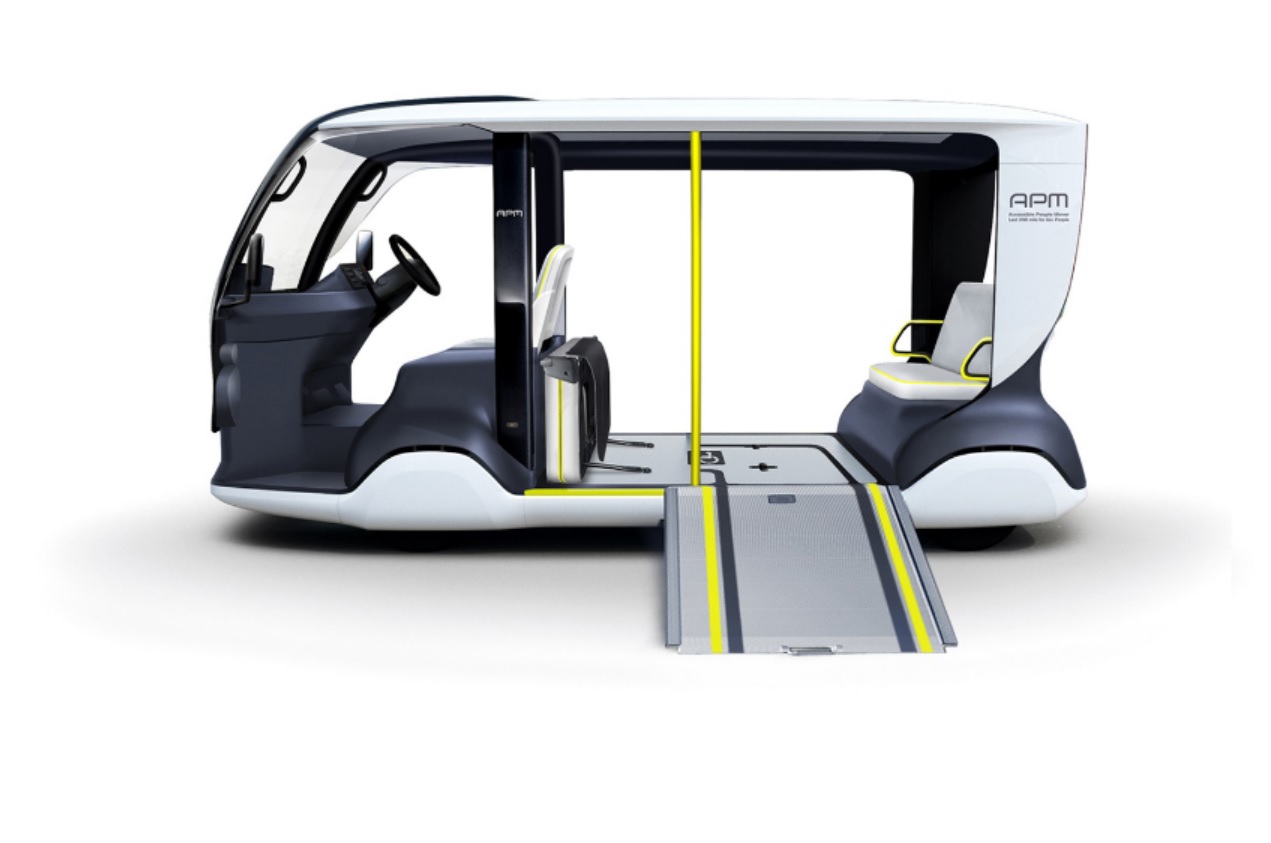Toyota is helping the organizers of the 2020 Tokyo Olympic Games ensure the event goes as smoothly as possible by developing a futuristic golf cart-like vehicle called the Accessible People Mover (APM). It wasn’t designed exclusively for golfers, though. Styled like a prop in Avatar, the APM will provide attendees a zero-emissions mode of transportation in which to move around Tokyo during the event.
Toyota designed the APM with an eye on function, not form, so design took a back seat to practicality. The end result is a lunchbox-shaped vehicle that looks like a city bus that shrunk in the dryer. The driver sits front and center, and looks at the road ahead through a huge panoramic windshield. The passengers sit a little bit lower, and they have an unobstructed view of the outside world because the APM’s sides are fully open.
Toyota plans to build 200 units of the APM in two versions. The first and most basic one is a people-hauler with space for a driver and up to five passengers on two rows of seats, or for a driver, a wheelchair rider, and up to two passengers. This is the model that will transport staff, athletes, and visitors between the different venues. The second version is essentially a low-speed ambulance. Its cabin is configured to carry a driver, a stretcher, and two paramedics. This is the model that will hopefully not see service on a regular basis.
Move beyond the interior, and both APMs are identical. Fully electric, the model has a top speed of about 11 mph, and a range of 62 miles. It can drive flat-out for about five and a half hours. It’s about as long as a Honda Fit, yet it’s taller than the average Ford F-150.
What will happen to the APMs after the Tokyo Olympics remains a mystery. They might be sold to private users, or they might end up in the hands of local governments across Japan. For all we know, they could receive a Supra-sourced six-cylinder engine and join a one-model racing series held on the Fuji Speedway. What’s certain is that the APM won’t join the Prius, the Tacoma, and the Corolla Hatchback in Toyota’s American showrooms.







